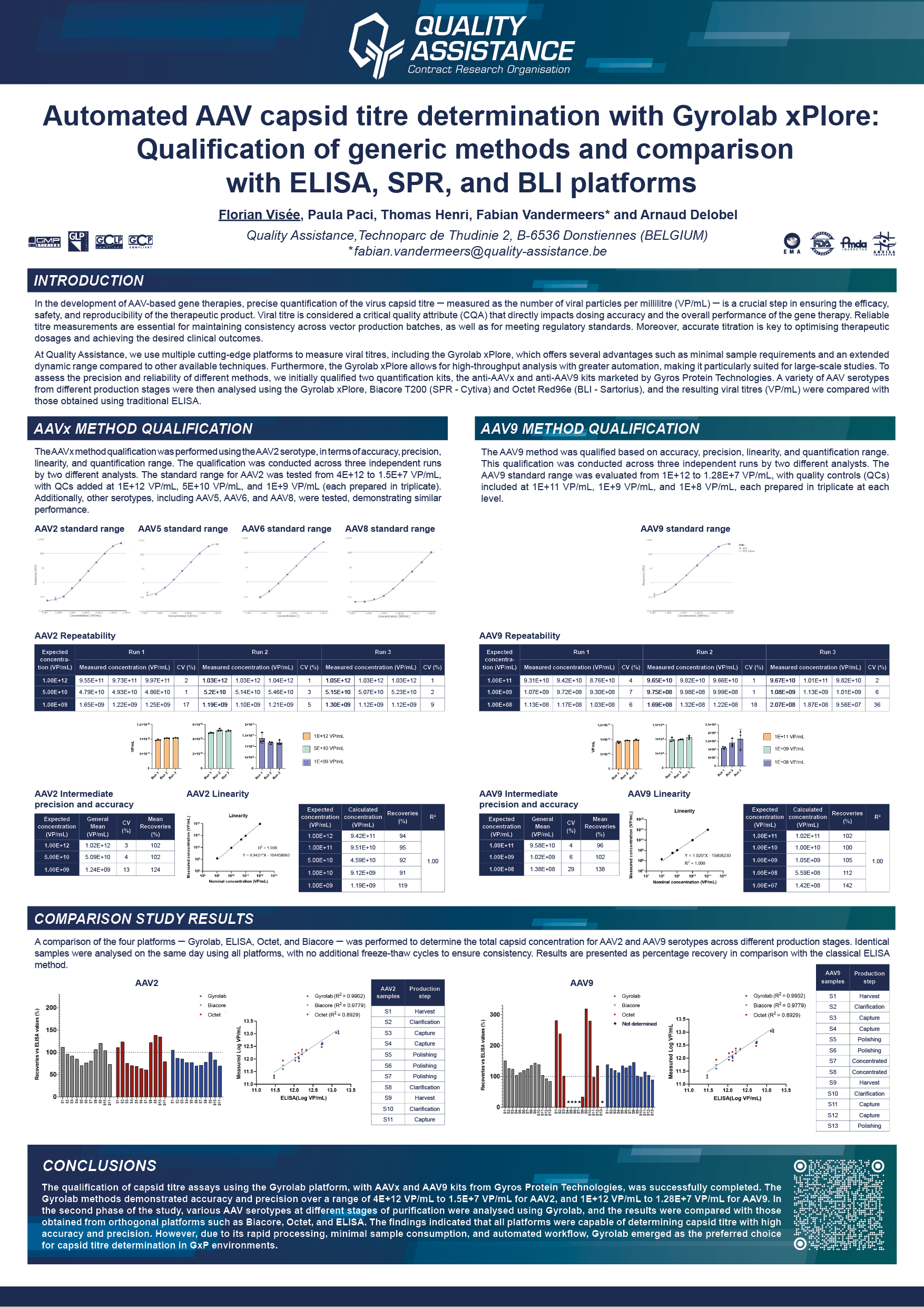Automated AAV capsid titre determination with Gyrolab xPlore: Qualification of generic methods and comparison with ELISA, SPR, and BLI platforms

In the development of AAV-based gene therapies, precise quantification of the virus capsid titre ꟷ measured as the number of viral particles per millilitre (VP/mL) ꟷ is a crucial step in ensuring the efficacy, safety, and reproducibility of the therapeutic product. Viral titre is considered a critical quality attribute (CQA) that directly impacts dosing accuracy and the overall performance of the gene therapy. Reliable titre measurements are essential for maintaining consistency across vector production batches, as well as for meeting regulatory standards. Moreover, accurate titration is key to optimising therapeutic dosages and achieving the desired clinical outcomes.
At Quality Assistance, we use multiple cutting-edge platforms to measure viral titres, including the Gyrolab xPlore, which offers several advantages such as minimal sample requirements and an extended dynamic range compared to other available techniques. Furthermore, the Gyrolab xPlore allows for high-throughput analysis with greater automation, making it particularly suited for large-scale studies. To assess the precision and reliability of different methods, we initially qualified two quantification kits, the anti-AAVx and anti-AAV9 kits marketed by Gyros Protein Technologies. A variety of AAV serotypes from different production stages were then analysed using the Gyrolab xPlore, Biacore T200 (SPR - Cytiva) and Octet Red96e (BLI - Sartorius), and the resulting viral titres (VP/mL) were compared with those obtained using traditional ELISA.
Conclusions
The qualification of capsid titre assays using the Gyrolab platform, with AAVx and AAV9 kits from Gyros Protein Technologies, was successfully completed. The Gyrolab methods demonstrated accuracy and precision over a range of 4E+12 VP/mL to 1.5E+7 VP/mL for AAV2, and 1E+12 VP/mL to 1.28E+7 VP/mL for AAV9. In the second phase of the study, various AAV serotypes at different stages of purification were analysed using Gyrolab, and the results were compared with those obtained from orthogonal platforms such as Biacore, Octet, and ELISA. The findings indicated that all platforms were capable of determining capsid titre with high accuracy and precision. However, due to its rapid processing, minimal sample consumption, and automated workflow, Gyrolab emerged as the preferred choice for capsid titre determination in GxP environments.